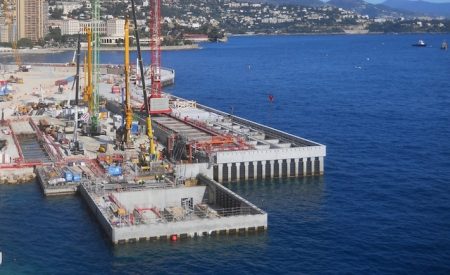
25 January 2016, Abuja — As crude oil prices continue to crash on the international market, the President Muhammadu Buhari administration has devised strategies to underline its resolve to look beyond oil revenue to implement the 2016 N6.04 trillion budget. The strategies derive their strength partly from big revenue generating government agencies like the Nigeria Customs Service, NCS, the Nigeria National Petroleum Corporation, NNPC, the Federal Inland Revenue Services, FIRS, and the Nigerian Maritime Administration and Safety Agency, NIMASA, and many others. They will no longer draw their expenditure at source. They will remit them into the consolidated revenue account, while their expenditure will be captured in the appropriation act. A bill along this line is in the making and will be transmitted to the National Assembly for passage into law, it was gathered at the weekend.
Furthermore, there will be an overhauling of Nigeria’s tax regime with a view to hugely enhance income, without hurting the poor, such that loopholes and leakages in the previous system will be blocked. The 2016 budget is premised on $38 per barrel oil benchmark, a calculation many commentators on the document have described as infeasible, considering the free fall in oil prices since last year. By last week, crude prices on the market had fallen below $28 per barrel, and with the imminent return of Iran to the global oil market, oil industry analysts have predicted that the price could slump to less than $20 before the year ends.
Goldman Sachs, one of the most influential banks in commodity markets, recently forecast that oil could fall below $20, with analysts at Morgan Stanley agreeing. Economists at the Royal Bank of Scotland and analysts at Standard Chartered Bank painted a more frightening picture of oil prices slumping to $16 and $10 a barrel respectively as the economy of China, one of the world’s largest consumers of oil, totters and her demand for oil shrinks. Even the Minister of State for Petroleum Resources, Dr. Emmanuel Ibe Kachikwu, admitted in Davos, Switzerland recently that the impact of dwindling production out of shale oil (an alternative to petrol which the US will soon be producing) would impact on prices in the next quarter. “You’re going to see a natural decline of almost a million barrels by virtue of non-investment. I personally don’t think it would get into $50 in 2016, in 2017 potentially,” he said.
Although the Country Officer of the Natural Resources Governance Institute (NGRI), Dauda Garuba, expressed hope that the tendency of a diplomatic row in the Middle East may just trigger prices, the Director, Centre for Petroleum, Energy Economics and Law, University of Ibadan, Prof. Adeola Adenikinju, warned that oil prices going below $20 per barrel would spell a downturn for the industry in Nigeria and the federal government needs to look at its fiscal regime. “It will affect investment, output and employment in the sector. Many new projects are now on hold, nobody will commit money into funding new projects, especially with the high cost of production in Nigeria, the militancy and all the high risks,” Prof. Adenikinju said.
The Minister of Finance, Mrs Kemi Adeosun, said government was not unaware of the pitfalls ahead as oil earnings further crumble. “In view of the present realities and the dynamics in the global oil markets”, Mrs Adeosun said last week, “We have braced ourselves up for the probability of a further decline in oil prices… Our focus is not on looking backwards but to work our way out of the economic slowdown without creating a financial crisis.” The minister declared that government is firmly committed to what she called the “counter-cyclical budget expenditure model,” which aims at reducing or neutralizing the anti-social effects of economic cycles and even encourages spending on infrastructure during downturns, but tightens credit during inflationary periods. Government, Adeosun maintained, is consequently committed to its budgetary spending on infrastructure, mainly on transport, roads, housing and power. What will, instead take the hit, is the deficit figure, which is being expanded by N0.8trn to N3trn, translating to 3 per cent of the gross domestic product. The minister was quick to explain the increase remains within the comfort zone for international rating agencies. In implementing the 2016 budget in the face of poor oil earnings, government has put together what Adeosun described as an “ambitious but sustainable strategy to do at $38 a barrel what we failed to do at $114 and above.”
As learnt by the Daily Trust on Sunday, a major plank of the ambitious strategy that the minister hinted is the Communication Service Tax Bill, which is being sponsored by a high-ranking senator and has passed its first reading in the National Assembly. The bill seeks to mandate telecommunication companies to pay a percentage of revenues they earn on every call to the federal government. Telecom operators currently pay only the corporate tax annually to the federal government. Considering that in June 2015, the industry regulator, the Nigerian Communications Commission, NCC, put the number of active telephone lines in the country at 145.4 million, and that Nigerians are known to stay long on phone and spend big, thereby generating billions of naira virtually every month for the telecom companies, government is hoping to earn at least N2 trillion a year from this tax alone. Government is also hoping to rake in billions of naira from the N50 stamp duty on bank transactions which the CBN recently introduced. As explained by the CBN, the policy is contained in the Stamp Duty Act 2004 and the Federal Government of Nigeria Financial Regulation of 2009. The CBN stated that the charge was on all receipts issued by banks or financial institutions in acknowledgment of services rendered in respect of teller deposits and electronic transfers for a value of N1,000 and above. As explained by the apex bank, “The implementation of the stamp duty at this point in time emanated from a Federal High Court order that the CBN should direct deposit money banks under its supervision to commence the collection of the duty on behalf of the federal government. “Consequently, the money deposit banks have been directed to commence the collection of the duty. Banks are to collect the N50 stamp duty and remit same to the Nigerian Postal Services, NIPOST, on behalf of the customer. “The N50 stamp duty is charged per transaction and not per volume. Hence, irrespective of the amount, the sum of N50 is to be charged provided such a transaction is N1,000 and above”.
However, the CBN Director, Corporate Communications, Mallam Ibrahim Mu’azu, pointed out that payment of salaries and wages as well as payments and deposits for self-to-self transactions, whether inter or intra-bank, are exempted from the N50 stamp duty policy. This clarification would seem to underline government’s resolve that its new tax regime does not hurt the poor. A suggestion on how to further source taxes to fund the 2016 budget came from an unlikely quarter when the Chief Whip of the Senate, Senator Olusola Adeyeye (APC, Osun Central), advised the federal government to start imposing taxes on the allowances of political office holders, including lawmakers. Adeyeye wondered why Nigeria can’t emulate the United States of America which, he said, sources 54 per cent of its $3.8 trillion from taxes. Besides taxes, another bill it was understood, the National Assembly would soon be deliberating upon, is one that would reform the manner some big revenue-generating agencies owned by government remit money to the Federation Account.
Currently, such rich agencies like NIMASA and the Nigerian Ports Authority are allowed to keep a substantial part of their earnings to run their operations, while they remit only certain percentages to the Federation Account. But the Buhari administration is said to have uncovered the extent to which this concession had been abused. Even before the incumbent administration came in last May, the Daily Trust on Sunday had done a story in October 2013 exposing how some government agencies were brazenly flouting the Fiscal Commission Act which mandates them to be remitting certain sums of money to the Federation Account when due. Now, government intends, by a new law, to create a Consolidation Account into which all such agencies will be remitting their generated revenues without holding anything back. Rather than hold back some percentages to run their operations as they have been doing, they will be expected to present their annual budgets to government, which will sort them out on their expenditures.
*Temitayo Odunlami, Ismail Mudashiru and Daniel Adugbo – Daily Trust



